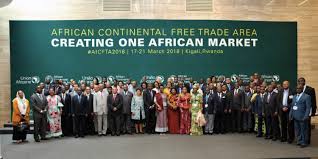
Several African countries have rejected a United Nations resolution condemning Russia’s war on Ukraine. The resolution, which was put forward by the United States and backed by several European countries, was supported by 55 countries in the UN General Assembly, with 22 abstentions and 20 votes against it.
Among the countries that voted against the resolution were several African nations, including Angola, Zimbabwe, and Sudan. Many African leaders have cited various reasons for their decision to reject the resolution.
One of the main reasons given by these countries is their close ties with Russia. Many African nations have longstanding diplomatic and economic relationships with Russia and have benefited from Russian investment and aid. Some leaders have argued that they do not want to take sides in the conflict between Russia and Ukraine and that they believe in the principle of non-interference in the affairs of other countries.
In addition, some African leaders have criticized what they see as the West’s hypocritical stance on the conflict in Ukraine. They argue that the West has been quick to condemn Russia for its actions, while ignoring or even supporting similar actions by other countries, such as the United States’ invasion of Iraq in 2003.
“The West is always quick to lecture us on democracy and human rights, but they are the ones who are constantly violating international law and the principles of the UN Charter,” said Zimbabwe’s President Emmerson Mnangagwa in a statement. “We will not be bullied or intimidated by their double standards.”
Another factor in the African countries’ decision to reject the resolution is the ongoing debate over the role of the UN in international affairs. Some African leaders have argued that the UN has become too politicized and is increasingly being used by powerful countries to further their own interests.
“The UN is supposed to be a neutral arbiter of international disputes, but in reality it has become a tool for the powerful to impose their will on the weak,” said Sudan’s Foreign Minister Mariam al-Mahdi in a recent interview. “We cannot support a resolution that we believe is motivated by political rather than humanitarian concerns.”
The rejection of the resolution by some African countries has sparked controversy and criticism from some quarters. Some Western countries have accused the African nations of ignoring the suffering of the Ukrainian people and of being complicit in Russia’s aggression.
“We are deeply disappointed by the decision of some African countries to reject this resolution,” said US Ambassador to the UN Linda Thomas-Greenfield in a statement. “We believe that all countries have a responsibility to uphold international law and to stand up for the principles of democracy and human rights.”
However, some experts have argued that the African nations’ decision to reject the resolution is not necessarily a reflection of their support for Russia, but rather a response to the perceived double standards of the West.
“The African nations’ rejection of the resolution is not necessarily an endorsement of Russia’s actions in Ukraine, but rather a reflection of their frustration with the West’s inconsistent approach to international law and human rights,” said Dr. Sarah Logan, an expert on African politics at the University of Oxford.
Regardless of the reasons behind their decision, the rejection of the resolution by some African countries highlights the complex and often fraught nature of international politics, and the ongoing debate over the role of the UN in resolving conflicts around the world.